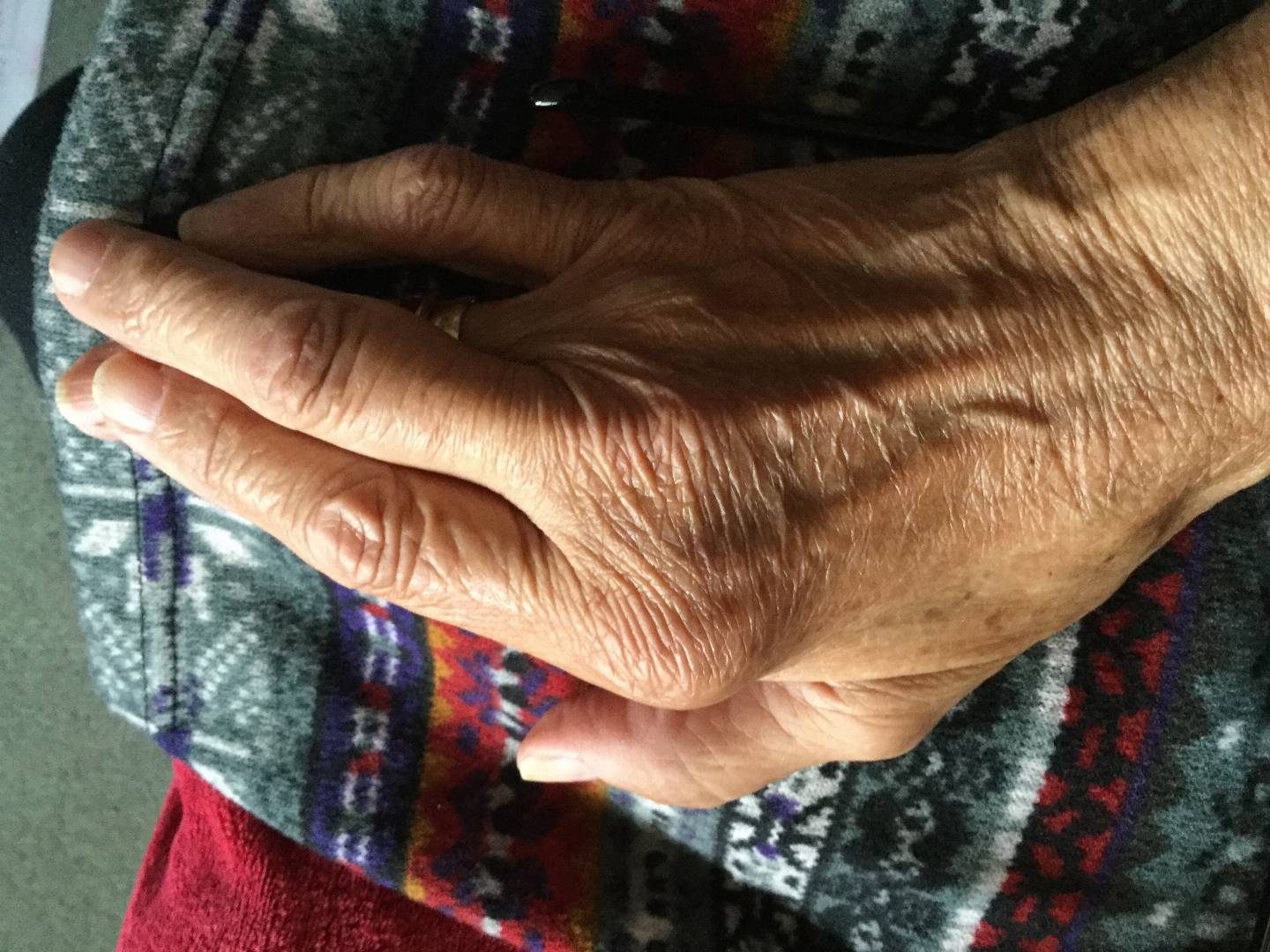- Home
- Share
- Forum
- Rheumatoid arthritis Forum
- Living with rheumatoid arthritis
- 9 ways to ease symptoms of fatigue for RA patients
Patients Rheumatoid arthritis
9 ways to ease symptoms of fatigue for RA patients
- 156 views
- 0 support
- 4 comments
All comments
![]()
PollyP
Good advisor
![]()
PollyP
Last activity on 01/02/2023 at 10:06
Joined in 2016
12 comments posted | 11 in the Rheumatoid arthritis Forum
Rewards
-
Good Advisor
-
Contributor
-
Messenger
-
Explorer
For me it's numbers 4 and 5 that I've been working on! Walking and healthy eating help a little I think.
What about others?
![]()
Mamarsue
![]()
Mamarsue
Last activity on 01/12/2024 at 15:09
Joined in 2017
3 comments posted | 3 in the Rheumatoid arthritis Forum
Rewards
-
Committed
-
Explorer
I agree, I do walking aerobics and try! to eat a healthy balanced diet whilst maintaining my weight. I still get fatigued at times but have learned to manage my day so I don't do too many things and end up fatigued.
![]()
SallyKyns
![]()
SallyKyns
Last activity on 25/09/2020 at 10:30
Joined in 2017
7 comments posted | 6 in the Rheumatoid arthritis Forum
Rewards
-
Contributor
-
Explorer
Im not sure if this is the right forum to post this message but here goes.
I’m new to this disease and have only been on methotrexate for a month. I’m right handed and my index & middle fingers have collapsed at the knuckles and are now pretty useless. See photo attached.
I’d appreciate any advice about devices members have tried for opening cans, bottles, jars etc., plus getting pills out of blister packs! It takes me hours ? and hurts like hell!
I have two dogs so always get exercise, even on bad days. My weight is about 60 kilos so I’m not overweight and my diet is not really unhealthy, I do have a sweet tooth though!
I also have RA in the left hand & shoulder, both wrists, feet & ankles and now the doctor thinks it’s in my knees too. Thanks in advance for any help.

See the signature
Sally x

Margarita_k
Community managerGood advisor
![]()
Margarita_k
Community manager
Last activity on 07/10/2020 at 11:39
Joined in 2016
1,195 comments posted | 50 in the Rheumatoid arthritis Forum
1 of their responses was helpful to members
Rewards
-
Good Advisor
-
Contributor
-
Messenger
-
Committed
-
Explorer
-
Evaluator
Hi @SallyKyns ,
Sorry to hear about your troubles.
I've created a new discussion on the topic of devices designed to help people with rheumatoid arthritis perform everyday tasks. Here it is: https://member.carenity.co.ukhttps://www.carenity.co.uk/forum/other-discussions/living-with-rheumatoid-arthritis/assistive-devices-to-help-with-everyday-tasks-2058
I invite you to post a comment on this discussion, sharing your story and asking your question. I hope you will thus get the feedback you are looking for.
If you need any help with the website, just let me know.
Kind regards,
Margarita
See the signature
Community Manager
Give your opinion
Survey
Survey
Members are also commenting on...
Living with rheumatoid arthritis
Rheumatoid arthritis diagnosis: What kind of tests did you undergo?
![]()
![]()
![]()
Articles to discover...

23/08/2023 | Testimonial
Dietitian Tanya helps the Lupus community to reduce their symptoms with diet and healthy living.
Medication fact sheets - patient opinions...
Subscribe
You wish to be notified of new comments
Your subscription has been taken into account







Margarita_k
Community managerGood advisor
Margarita_k
Community manager
Last activity on 07/10/2020 at 11:39
Joined in 2016
1,195 comments posted | 50 in the Rheumatoid arthritis Forum
1 of their responses was helpful to members
Rewards
Good Advisor
Contributor
Messenger
Committed
Explorer
Evaluator
You don't know you are tired until you've dealt with a condition like rheumatoid arthritis — up to 98 percent of people with RA report energy-sapping fatigue, according to the Arthritis Foundation. Debilitating exhaustion is also common with conditions like fibromyalgia, depression, and, of course, chronic fatigue syndrome. Fatigue is a common complaint that drives people living with these diseases to the doctor, but it turns out that a few little lifestyle changes can go a long way toward boosting your energy level and helping to ease rheumatoid arthritis symptoms. Try these tips to feel like yourself again.
1. Ask Your Doctor to Rule Out Medical Causes of Fatigue
Your doctor will evaluate your condition and order tests as necessary. "If you suffer from chronic fatigue, the first step is to see a doctor to rule out a treatable medical problem, such as anemia," advises Elizabeth Araujo, MD, a rheumatologist at Universitätsklinikum Erlangen in Germany. "If you have a chronic condition, like fibromyalgia or rheumatoid arthritis, work with your doctor to make sure the disease is being treated and controlled properly." Get the appropriate blood work and make sure you aren't having a reaction to any medication.
Getting screened for depression can be helpful, too. Depression is all too common in people living with chronic conditions, but it's very treatable.
2. Get Enough Sleep, Consistently, to Help Fight Fatigue
Fatigue can be one of the most difficult aspects of living with a chronic illness. Sleep that is deep and restorative and in the range of seven to eight hours a night is ideal to help replenish important neurochemicals, like natural endorphins [pain modulators] and serotonin. Sleep also allows joints and muscles to heal and rest.
3. Prepare Well for a Night of Quality Sleep to Fight Fatigue
If you want to get refreshing sleep that helps you feel less tired when you wake up, plan your evenings carefully. "Avoid big meals, caffeine, and alcohol before bedtime," suggests Dr. Araujo. You should also avoid caffeine late in the day. Consider what type of media you consume in the late evening, too — stimulating television shows or upsetting movies may disrupt rest. And keep in mind that while a nightcap may help you fall asleep, it's likely to cause you to wake up later and distract you from a restful night. Finally, consider going to bed earlier, so that you can wake up earlier and ease into your day at a more leisurely pace.
4. Exercise for More Energy and Better Sleep to Fight Fatigue
Regular exercise not only boosts your energy, it makes it easier for you to fall asleep at night. Engage in daily low-level exercise, such as gentle stretching and walking. Exercise will help with stress and improve sleep, as well as help maintain strength, balance, and flexibility. The best time to exercise to fight fatigue is early in the day; avoid exercising in the evening because the stimulation of exercise can interfere with sleep. If you only have time to exercise in the evening, Araujo suggests stretching or yoga.
5. Eat a Healthy, Balanced Diet to Help Fight Fatigue
A nutritious diet can help energize you throughout the day. A diet high in fruit, vegetables, and grains is best, including other food groups — dairy, meat, and oils — in moderation. It's important to remember that an ideal body weight is best for the weight-bearing joints, especially the knees, feet, and ankles. Moderation is critical when it comes to diet and exercise.
6. Step Into the Sunlight to Reset Your Body Clock and Help Fight Fatigue
One way to fight fatigue is to pay attention to your internal clock. Sunlight delivers vitamin D and tells your brain and body when to get active. For some people, the dark winter months can be the hardest time to fight fatigue due to the short days and lack of sunshine. Besides bundling up and getting outside, fight winter fatigue by arranging your home and office environment to allow for maximum sun exposure. Aim for at least 30 minutes of sunlight every day.
7. Maintain a Healthy Weight to Help Fight Fatigue
Being overweight isn't just bad for your body and your self-esteem, it’s also bad for your sleeping patterns. Being overweight has been shown to contribute to sleep disorders and to low energy levels. Fight fatigue by cutting back on calories, especially sugary beverages and other sweets, and increasing your exercise. If you’re concerned about your — or your child’s — weight, talk to your doctor about creating a weight-loss plan.
8. Change the Way You Respond to Stress to Help Fight Fatigue
One of the most common causes of fatigue is stress, but the way you respond to it can make a difference in the effect it has on you. Even if you can't avoid stress in your life, try to deal with it in a constructive way. Learning relaxation techniques, such as progressive muscle relaxation, meditation, tai chi, and self-hypnosis, will lessen stress and keep those tired feeling at bay. "A daily walk or a yoga class can also help you reduce stress, control your weight, and fight fatigue," advises Araujo.
9. Experiment With Complementary Wellness Approaches to Help Fight Fatigue
Aromatherapy is one example of an complementary remedy that may be used in addition to traditional treatment. It uses the essential oils from plants and other sources to lessen the effects of stress and promote well-being. The oil is usually diluted and either rubbed into your skin or inhaled. Some laboratory studies performed on animals suggest that essential oils can be effective in promoting energy. Essential oils, such as those made from geranium, lavender, and cedarwood, may send chemical messages to your brain that improve your mood and help you to feel more relaxed and energized.
Source: everydayhealth.com
________________________________________
What do you do to manage fatigue?
If some of these tips have already helped you, it would be great if you could tell us more about it.